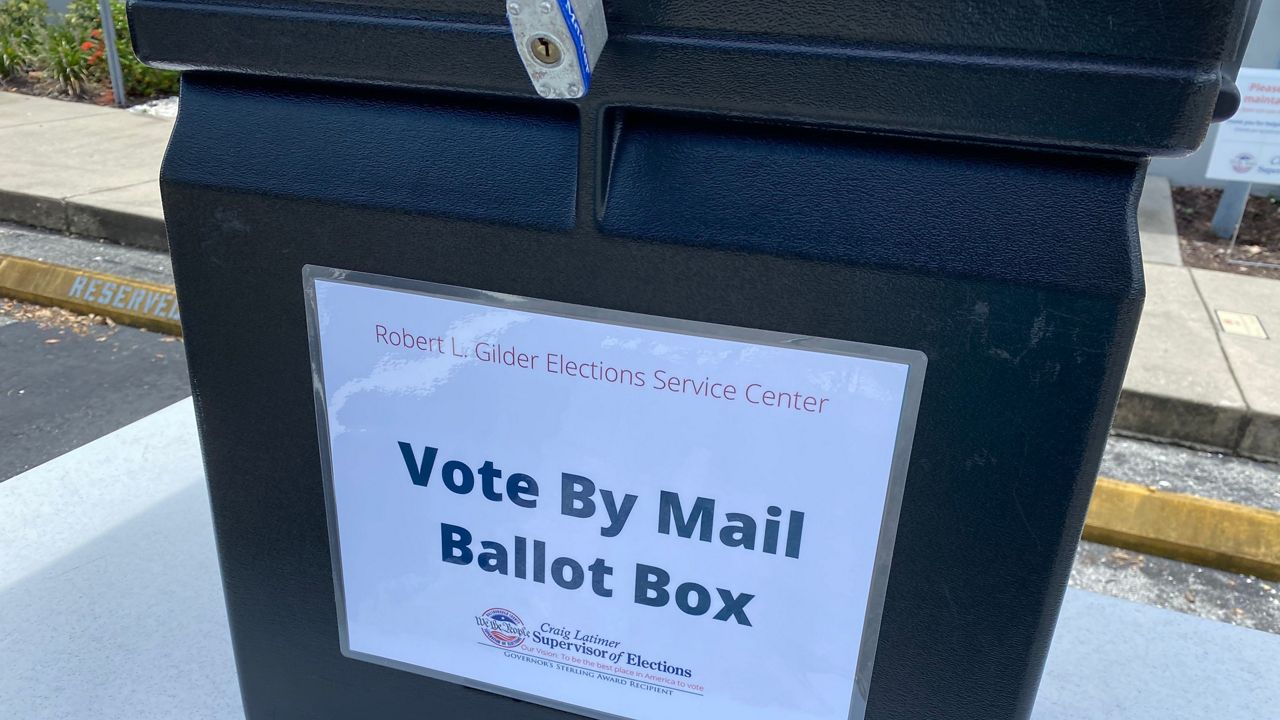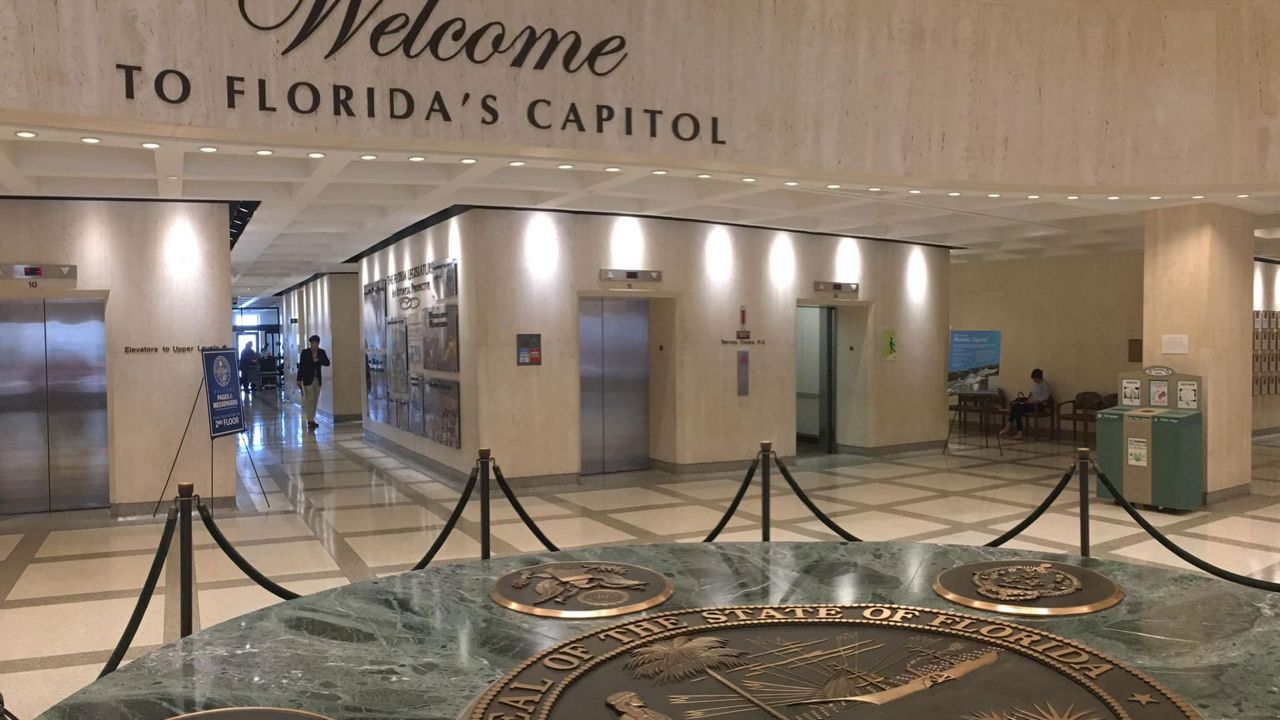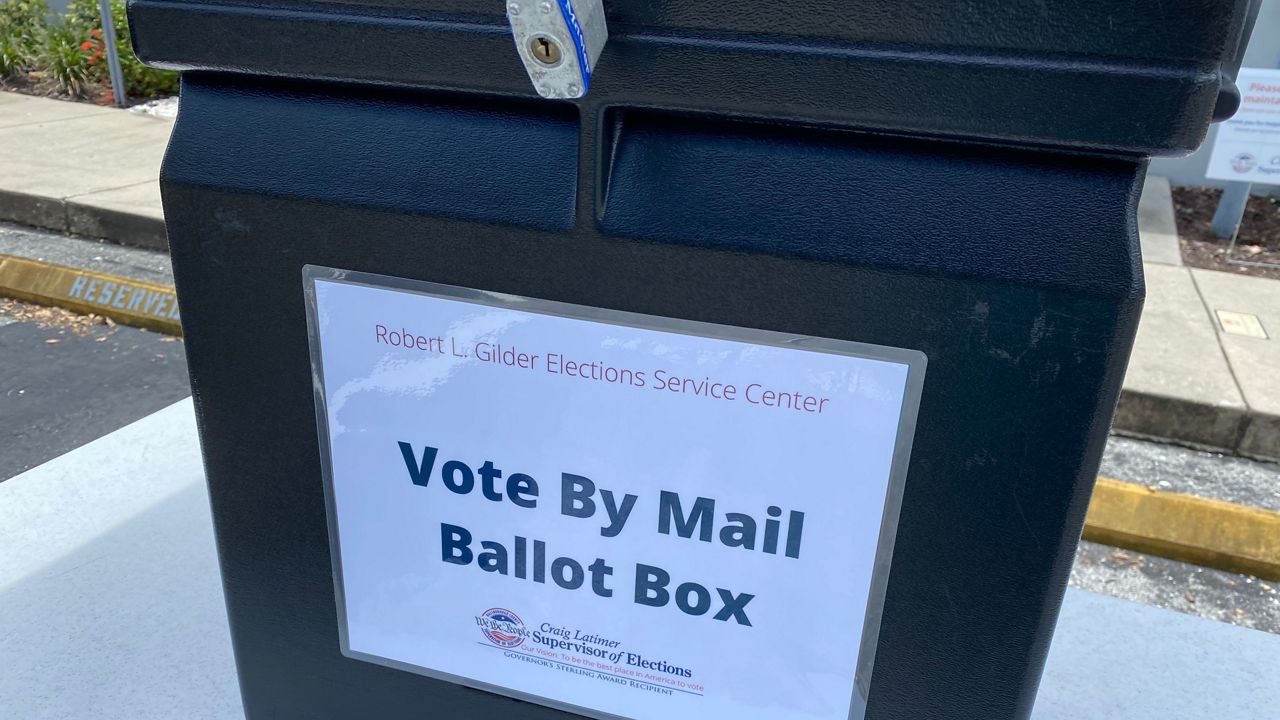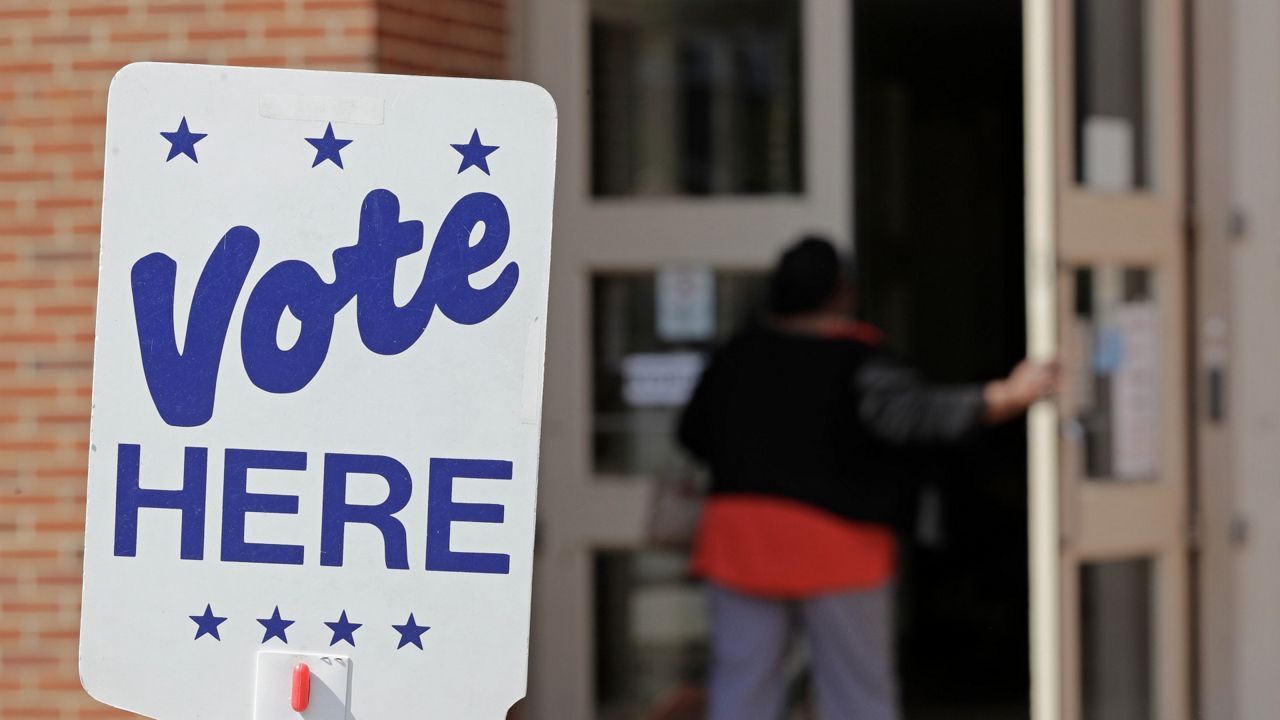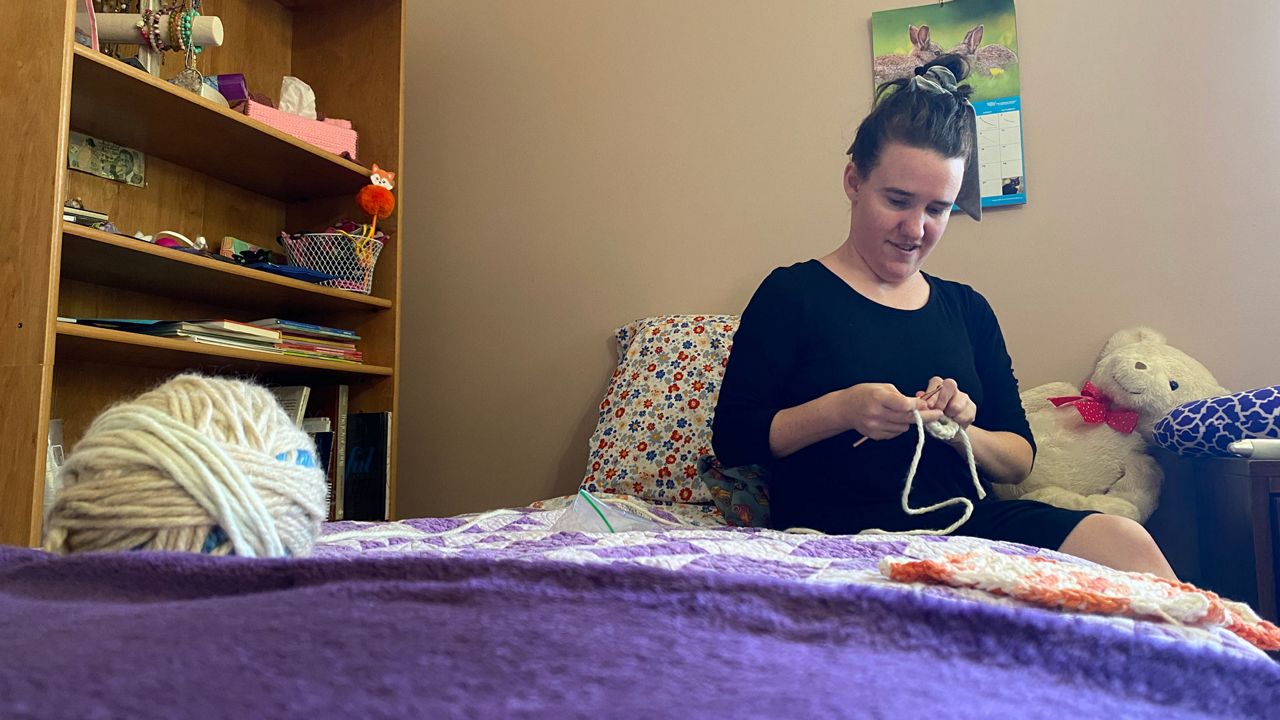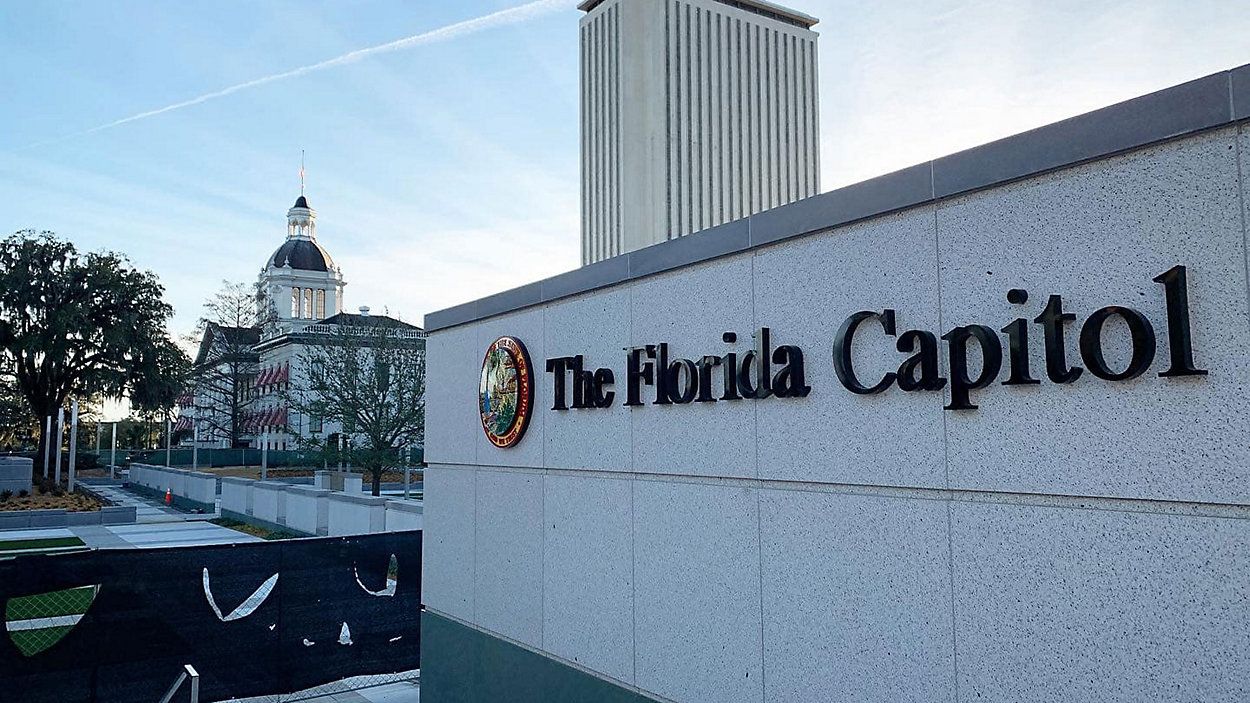TALLAHASSEE, Fla. — State Rep. Omari Hardy on Wednesday told fellow members of the Florida House of Representatives why he wouldn’t be voting for a bill that aims to change state election laws, many of which would apply to so-called drop boxes.
What You Need To Know
- The Florida House has approved a Senate bill that opponents say would make it harder to vote
- A West Palm Beach representative called the bill "the revival of Jim Crow in this state"
- A sponsor of a similar House bill says "the people, our constituents, like what we have in this bill"
“This bill is the revival of Jim Crow in this state whether the sponsors admit it or not,” Hardy, D-West Palm Beach, said during debate on the House floor.
About two hours after further debate, the House approved a Senate bill, SB 90, which now more closely resembles a House bill that critics say would make it harder for Floridians, particularly people of color and the most vulnerable, to vote.
The Republican-controlled House voted 77-40 in favor of the bill, as amended.
“It’s a sad day,” Rep. Geraldine Thompson, D-Orlando, said before the vote on the floor of the House of Representatives. “It’s a sad day personally, because people like me, not long ago in history were not able to vote. And I know personally the path and sacrifice it has taken to get here. We have come treading our path through the blood of the slaughtered.”
The vote came after passange of an amendment to the bill Tuesday from Rep. Blaise Ingoglia, R-Spring Hill, sponsor of HB 7041. Compared with the original Senate bill, Ingoglia's bill is a more broad-ranging election measure that tightens rules on everything from how you change information in your voting records, to ballot drop boxes, to signature verification, to changes that could affect whether people can pass out drinks or food to voters on line to vote.
His amendment to SB 90 stood as an effort to reconcile that bill with his House bill — a key step on its road to becoming law. The amended bill now goes back to another vote in the senate. The legislation also would require the signature of Republican Gov. Ron DeSantis.
“This bill creates good common-sense revisions to our election laws that will better ensure the integrity of elections, and why wouldn’t you want to do that?” Rep. Tom Leek, R-Daytona Beach, told colleagues.
Opponents criticize such legislation as voter-suppression attempts similar to a bill that recently became law in Georgia. That law and legislation like it follow claims from former President Donald Trump that the 2020 presidential election had been stolen from him.
Democrats continued to question Wednesday the necessity of the legislation given that the sponsor himself has hailed Florida’s 2020 general election as a model for the country.
“This bill does not enhance the fairness, safety, security or transparency of elections like we saw in 2020, which — breaking news — is over, by the way,” Rep. Travaris McCurdy, D-Orlando, told fellow House members. “We should instead have honest dialog about voter suppression.”
Opponents say the bill would particularly affect people of color, the elderly, the disabled and the homeless, among others.
Thompson, the Orlando representative, noted a rise in the 2020 election of vote-by-mail among Black voters.
“I asked the sponsor if this might be considered suppression, and he said, ‘Absolutely not — it’s all about guard rails,’” Thompson said on the House floor.
Ingoglia, the sponsor, said in his closing remarks on the House floor: “I’m telling you, we are right on this issue. The people, our constituents, like what we have in this bill.”
His Republican colleagues saw it the same way.
“This bill is not about making it harder to vote,” said Rep. Tommy Gregory, R-Sarasota. “This bill is about making it harder to vote illegally.”
Republicans also pointed the so-called ballot harvesting that they said has happened in their districts.
Rep. Jenna Persons-Mulicka, R-Fort Myers, called the bill an insurance policy against known and unknown voter fraud in Florida.
“We buy insurance because it’s not a matter of ‘if’ but a matter of ‘when’ a problem happens,” she said.
Wednesday’s House action followed Monday's activity in the Senate, where that chamber voted 23-17 in favor of SB 90. Sen. Jeff Brandes, R-St. Petersburg, broke from Republicans and voted against it. The Senate otherwise voted along party lines.
Ingoglia suggested that his amendment eased prohibition on the giving of food and water to prospective voters within 150 feet of a polling station.
Yet it required drop boxes at early voting sites and discretionary sites to operate only during early voting hours and to be staffed by supervisor of elections personnel.
It said only members of a voter’s immediate family, including grandchildren, can pick up and deliver a voter’s mail-in ballot on the voter's behalf. It requires a written declaration for a mail-in voter’s designee, who otherwise must include a so-called attestation of authority, along with an ID check at the time of drop-off.
The amendment also clarified that vote-by-mail requests are good for the next general election while grandfathering in all current requests. Under current law, such requests are good for two election cycles.
Leek, the Republican from Daytona Beach, said the bill also requires supervisors of elections to tell constituents where to put drop boxes, requires equal access to drop boxes, and requires election-day reporting of live voting and vote-by-mail.
“Why wouldn’t you want to do that?” he asked fellow House members.
Much of the debate on Tuesday and Wednesday focused on drop boxes, which have emerged as a flash point, as The Pew Charitable Trusts puts it, in the debate over voting access. As Pew says, supporters prefer them because they fear their mail-in ballots otherwise might not be counted.
Meanwhile, opponents of drop boxes cite concerns about ballot security, "despite little evidence that drop boxes are any less secure than other voting methods," Pew says.
During Wednesday’s debate in the Florida House, Rep. Michael Grieco, D-Miami Beach, told colleagues: “This bill makes it harder for some to participate, and any bill that makes it harder to vote for any person in the state of Florida, you should not be voting ‘yes’ on.”




